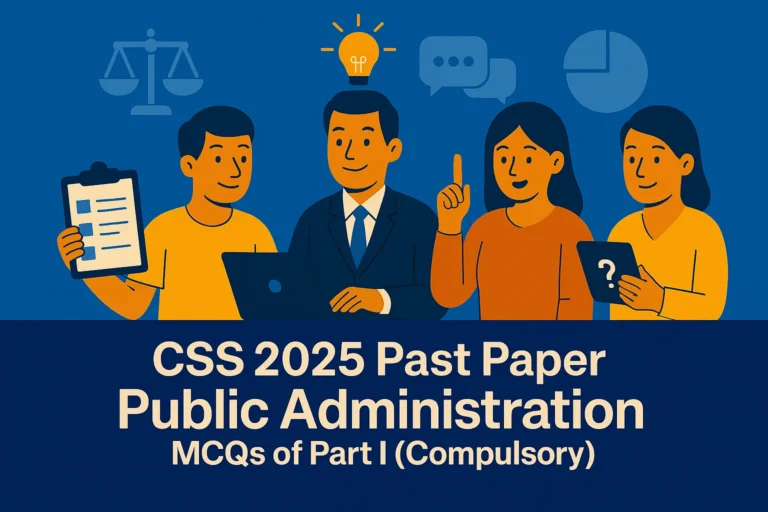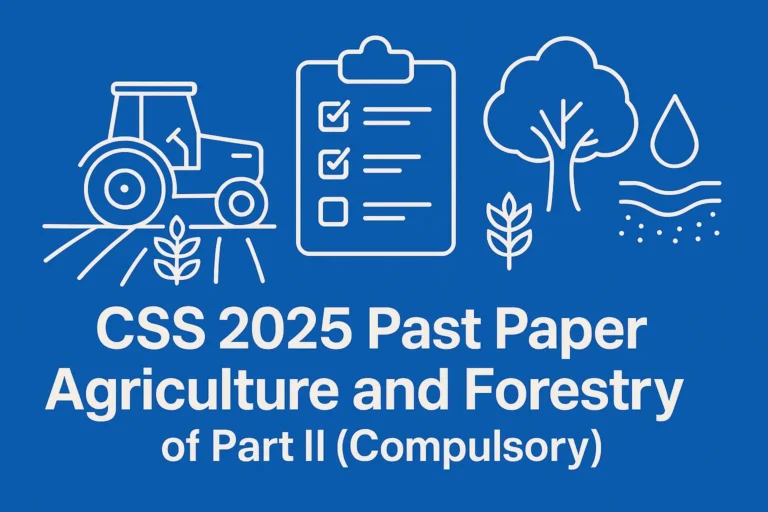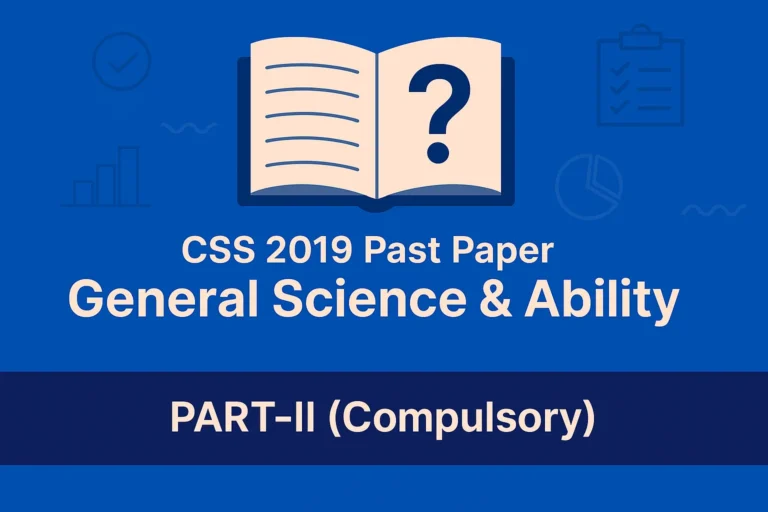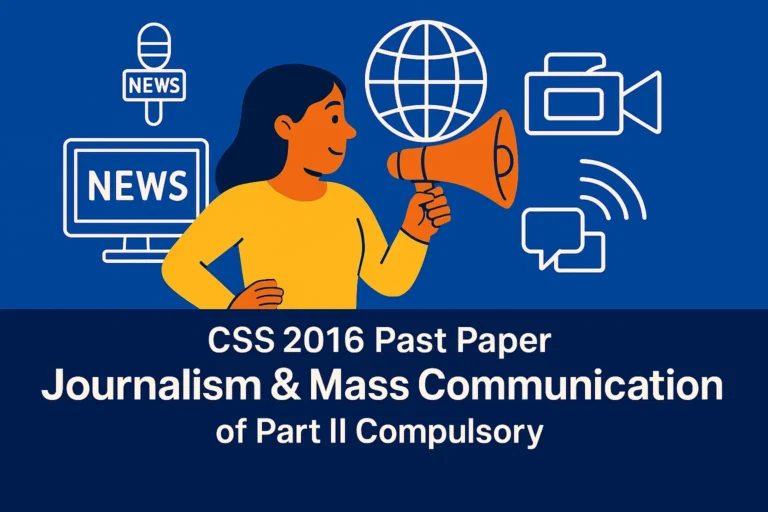Democracy – The Best Revenge of Dictatorship
(English Essay – CSS & PMS)
Outline
- Introduction
- Excesses of Dictatorship
- Politicians and Opportunism under Dictatorship
- Military Rule and Division of Political Parties
- Parliament under Dictatorial Shadow
- Military Rule and Corruption
- The Judiciary under Dictatorship
- Democracy as an Ideology to Overcome Dictatorship
- Challenges in Practicing Democracy in Pakistan
- Corruption under Civil and Military Regimes
- Economic Inequality under Dictatorship and Democracy
- The Role of Parliament and Judiciary in Democracy
- Conclusion
Introduction
This saying became popular in the country during the 2008 March elections. Mr. Bilawal, the Chairman of the Pakistan People’s Party, came out with this observation when the PPP swept the polls along with the N-League. The saying implies that democracy offers the best revenge against the excesses committed by the military dictatorship. Dictatorship brings many excesses in its wake that are done against the people in a country like Pakistan.
Excesses of Dictatorship
Dictatorship falls heavily on the fundamental rights of the people as enshrined in the Constitution of the country. It robs people of their freedom of speech and expression. Dictatorship destroys the freedom of the press and electronic media. It cannot digest even the healthiest criticism against its policies, which are the outcome of one man in power. It suppresses people to an extent, forcing them to endorse the policies enforced by annulling the law of the land.
Politicians and Opportunism under Dictatorship
The politicians who are opportunists throw their weight with the ruling dictators. The majority of the politicians do not have the moral courage to denounce the dictatorial rule. They side with the dictators to avail themselves of the timely favors and bounties. When spineless politicians meet together to make hay while the sun shines, the devil is relaxed, as most of their evil work is done by them. The country is taken off the civil rule and is plunged into unknown dangers.
Military Rule and Division of Political Parties
A dictator feels the necessity of enjoying the backing of certain political elements, for which purpose a new political party, comprising the opportunists and timeservers, is formed overnight. It’s rather unfortunate that the Muslim League, the mother party, enjoys this bad reputation of being split into different factions.
During the military rule of late Field Marshal Ayub Khan, it was split up into two factions:
- Convention League
- Council League
The Convention League became the King’s party, which stood behind Ayub Khan to back his genuine/insincere actions.
Parliament under Dictatorial Shadow
The parliament, under the ominous shadow of a dictator, becomes a rubber stamp, as it has to endorse the dictator’s decisions. It loses its independence to debate national issues. Democracy becomes a facade. Under the cover of democracy, decisions are taken that mostly run against national interests.
Military Rule and Corruption
The military generals wearing the tunic of dictatorship transplant the system of graft, corruption, and exploitation. This type of system is already there, which further sustains, when the influential military element begins to acquire control over economic assets in the country.
When General Musharraf, on 3 November 2007, took the illegal step of clamping an emergency in the country, the judges of the Supreme/High Courts were asked to take a fresh oath under the new PCO, and the ones who refused to take the oath were sacked and sent home. His act smacked of the highest form of corruption.
The Judiciary under Dictatorship
Another negative point of dictatorship is that it mercilessly destroys the institutions of a country. Its main target is the judiciary, which it fears the most. It tries to cripple the independence of the judiciary by issuing the PCO under which the judges of the Supreme and High Courts are made to take an oath, deviating from the constitutional one.
Democracy as an Ideology to Overcome Dictatorship
After having dealt with the negatives of dictatorship, we may now take up democracy as an ideology to overcome the ill legacies of the dictatorship.
Democracy is not merely to be talked about but also to be implemented in letter and spirit. Our politicians eulogize democracy, invoke its virtues, but are seldom serious about trying democracy in its essence.
Challenges in Practicing Democracy in Pakistan
Democracy is good when it is practiced according to its rules. Democracy demands action to translate its principles into action. The goddess of democracy is a jealous goddess who demands action to uphold the principles most religiously on the part of politicians. The need is to practice principles of democracy more effectively.
Corruption under Civil and Military Regimes
Military regimes abuse taxpayers’ money by writing off bank loans in billions. Musharraf wrote off billions of bank loans to the powerful. Rs. 119 billion of loans were written off during the last five years (2004–2008).
The present PPP Government is equally responsible for writing off loans of 33 billion, as the official documents placed before the National Assembly reveal, as per the report of The News dated 6.8.2009.
Economic Inequality under Dictatorship and Democracy
Under both regimes, the rich grow richer and the poor become poorer. The economic system is manipulated in a way to rob the poor and enrich the already rich. It happens under martial laws and civil governments.
The Role of Parliament and Judiciary in Democracy
Democracy rests on the rule of law. Let parliamentarians establish the superiority of rule and law. Let parliament emerge as the supreme sovereign body.
The Supreme Court has thrown the ball into the court of the parliament. The government should come out of the opportunist compromises and bring Musharraf to the court of law to defend himself. It is a test of the parliament.
Conclusion
In theory, it is not wrong to say that democracy is the best revenge for dictatorship. But when it comes to the ground realities in the case of Pakistan, it means the promotion of corruption, denial of the real rule of law, and weakening of sovereignty.
Democracy can become a bulwark against dictatorship if its rules are honored and a regime of law and merit is instituted; the judiciary emerges as the strongest institution to dispense justice to all. A lame type of democracy is far better than a dictatorship.
Let democracy emerge as a strong shield to dismantle the excesses of dictatorship. The Quaid’s Pakistan and democracy move hand in hand.
Click here to find more articles on English Essay.





